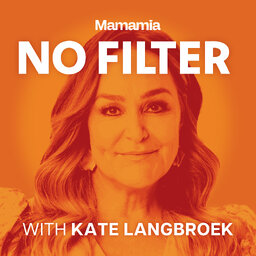Anthony Albanese, Prime Minister: The Interview
Australian women will soon face a significant decision. In the coming weeks, they’ll help decide the next Prime Minister of Australia.
With the election on the horizon, we have invited both Prime Minister Anthony Albanese and the Opposition Leader Peter Dutton onto No Filter to speak directly to you.
The conversation you’re about to hear isn’t only about politics and policy positions. It’s also about the man behind the politics, the person who is asking you to put your trust in them.
Listen to our conversation with Opposition Leader Peter Dutton, here.
THE END BITS:
Listen to more No Filter interviews here and follow us on Instagram here.
Discover more Mamamia podcasts here.
Feedback: podcast@mamamia.com.au
Share your story, feedback, or dilemma! Send us a voice message, and one of our Podcast Producers will get back to you ASAP.
Rate or review us on Apple by clicking on the three dots in the top right-hand corner, click Go To Show then scroll down to the bottom of the page, click on the stars at the bottom and write a review
CREDITS:
Host: Kate Langbroek
Guest: Prime Minister Anthony Albanese
Mamamia acknowledges the Traditional Owners of the Land we have recorded this podcast on, the Gadigal people of the Eora Nation. We pay our respects to their Elders past and present, and extend that respect to all Aboriginal and Torres Strait Islander cultures.
In 1 playlist(s)
No Filter
Riveting stories. Fascinating lives. Australia’s #1 interview podcast, with Kate Langbroek.Social links
Follow podcast
Recent clips

For 15 Years, No One Was Listening To Lainey Wilson. Now She's Everywhere.
52:29

Supermodel Rachel Hunter Was The Ultimate 90s Muse - Then She Walked Away
1:14:06

Michelle Slept by Her Son’s ICU Bedside for Most of Last Year
1:15:11
 No Filter
No Filter